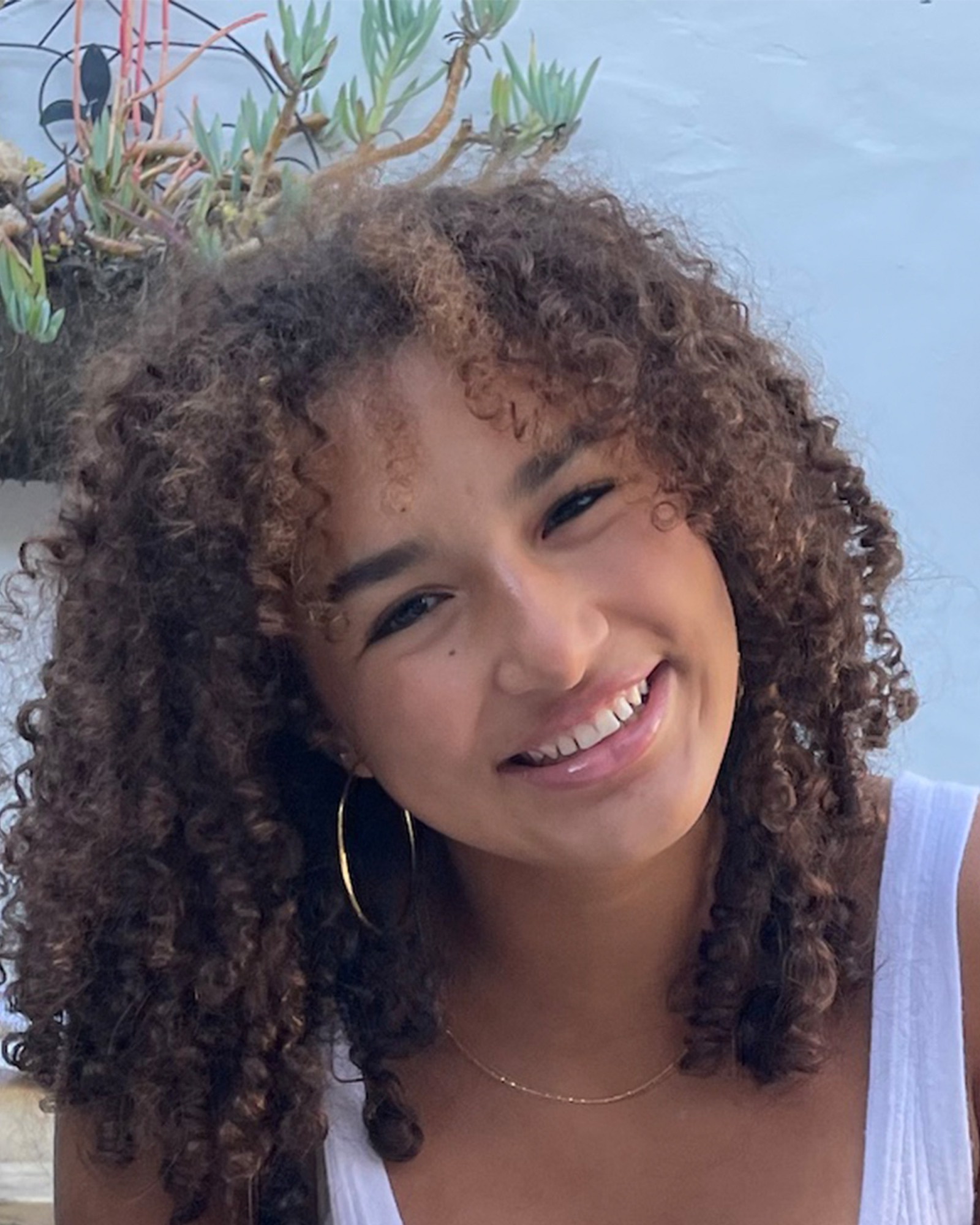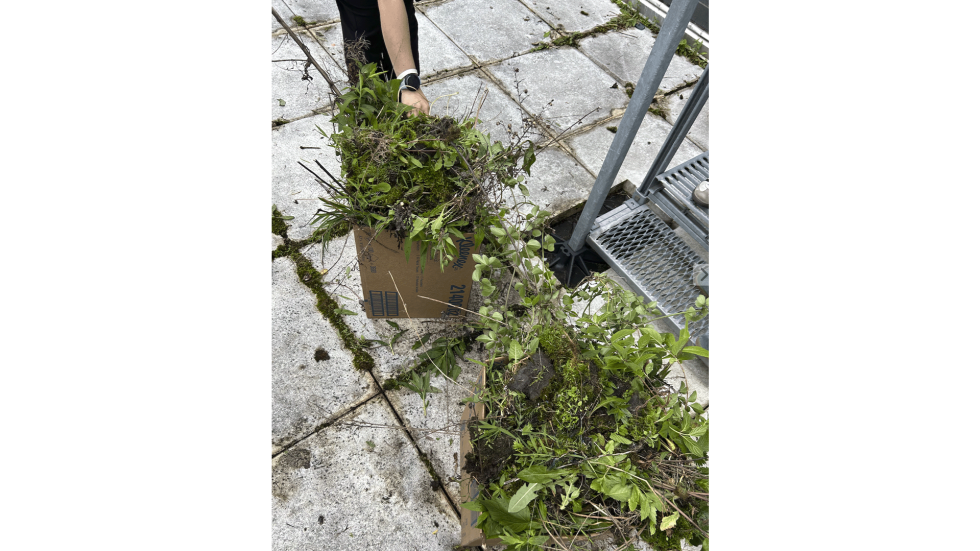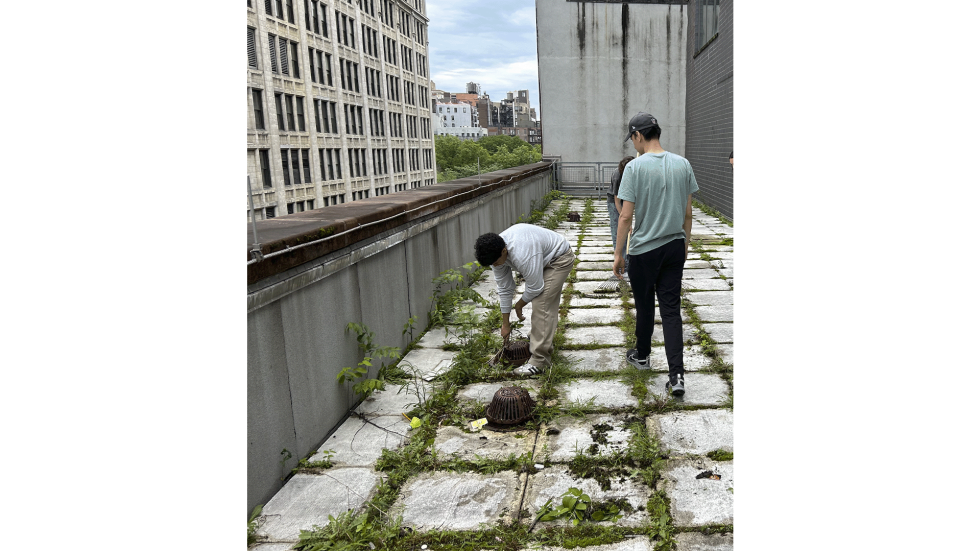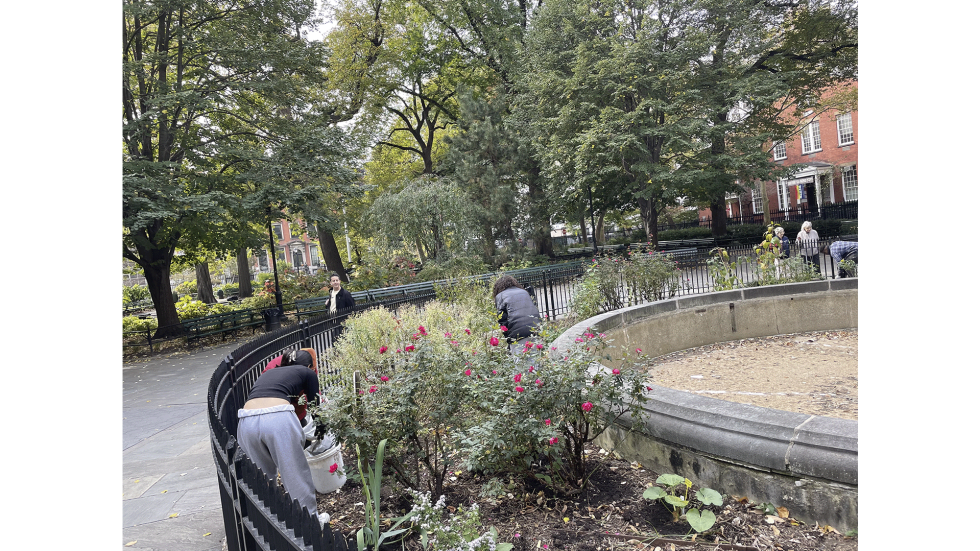Lucia S's Action Plan
Action Plan Title: Creating a Community Garden: Addressing Food Insecurity and Promoting Urban Green Spaces

Lucia S.
Hometown/Country: New York, New York
Program/Year: BELL Alaska, 2023
Please describe your Action Plan in one or two sentences.
My Action Plan is to lead a community project to build a garden on the sixth floor roof of my school. After maintaining and harvesting the garden, grown produce can be used for both school lunch options and donated to the Union Square Greenmarket, the year-round local farmer’s market.
What is the need or issue that you are trying to address with your project?
Through this project, we hope to address the lack of both community spaces and green spaces within our school. Being in the city can often separate us from nature besides from city parks, and bringing a green space to a place where students spend a majority of their time can have many positive effects. After cultivating our garden, we will also be able to address food insecurity and equity in a direct way. By giving produce back to the school and the community, we will be able to make an impact and improve the lives of others.
What steps and efforts have you taken so far to advance your project?
To kick off the start of the year, I collaborated with another peer in my school to revitalize the Green Team – a student-run club filled with individuals interested in the environment and sustainability. After gathering over 80 members across the school, we were able to begin efforts to spread awareness of sustainable gardening practices, horticulture, and urban green spaces. After collaboration and communication with school staff, we were able to secure the sixth floor roof space and begin fundraising efforts. We have applied for grants around the New York City area through GrowNYC, as well as independent fundraising efforts such as green-themed bake sales and public wishlists curated by all club members. In addition to these direct contributions, we have also had many opportunities to engage with the larger community by volunteering at local parks. Through these experiences we are able to understand more about gardening, and have hands-on experience with maintaining a community space.
What next steps will you take regarding your Action Plan? Is it complete? If not, what is your plan to continue working on it?
The most pressing next steps include adapting our vision in order to secure another space for the community garden. Due to safety concerns, the garden will have to be relocated or adapted to a hydroponic format. This is a more recent issue, stemming from a conversation with school staff around mid-August. The next steps include continued fundraising for more materials, and focus on more community engagement and service opportunities to both enhance our understanding of urban green spaces and connect with local organizations. We also will focus on conceptualizing how a new space could look, and continue to raise awareness when we can in the community.
How did you get interested in this issue? Why does this issue matter to you and should it matter to others? What new insight or learning do you have about this issue?
I’ve always been very passionate about environmental issues, and in this case, how they coexist with social issues. As our world is becoming increasingly industrialized, deforestation and other issues relating to the destruction of the natural world are more evident than ever. In a place like New York City, green spaces can be hard to find in certain neighborhoods which lead to increased noise pollution, higher urban temperatures, and less natural biodiversity. By creating a local green space, I am able to address these issues on a smaller scale and further promote and educate others on the need for urban green spaces. Addressing food inequity is also an issue relevant to my Action Plan, as over a million New Yorkers struggle with food insecurity. Being able to help students and the local community gain access to healthy and sustainably grown food can help combat food insecurity in my immediate community.
How has your involvement in this project impacted you personally? What have you learned about yourself?
Throughout this project, I have learned a lot about advocating for myself and communication. I have learned that in order to create change and impact my community in a positive way, I needed to be the voice of not only myself, but my club. While doing this wasn’t entirely new to me due to other experiences as a club leader, throughout the creation of Green Team I had to push myself out of my comfort zone. The goals were ambitious and sometimes required many meetings and conversations with school staff. Oftentimes we were not getting taken seriously or were overlooked by school administration. I learned that I had to make an effort to be proactive and take action myself, in order to benefit everyone – and through this I realized I was more capable and made more change when I used my own voice.
What knowledge or skills that you learned during your BELL/Leadership Institute course have you applied to your work on this project?
I have definitely applied my collaborative skills I utilized during the BELL course. Throughout my time in Alaska, I had to work alongside others constantly to solve problems, complete research, and finish projects and assignments. The experience with working in large and small groups prepared me for working alongside my co-leader and advisor, as well as alongside my entire club. I also gained a lot of insight from one of my instructors in the program, as she had experience with cultivating plants on a local farmland.
What tips and advice would you give to new students as they think about developing and working on their own Action Plans?
My biggest piece of advice is to surround yourself with people who will motivate you and support you. In my experience, it's hard to accomplish goals and create change in a community as an individual - with a group, a goal can become a reality.


